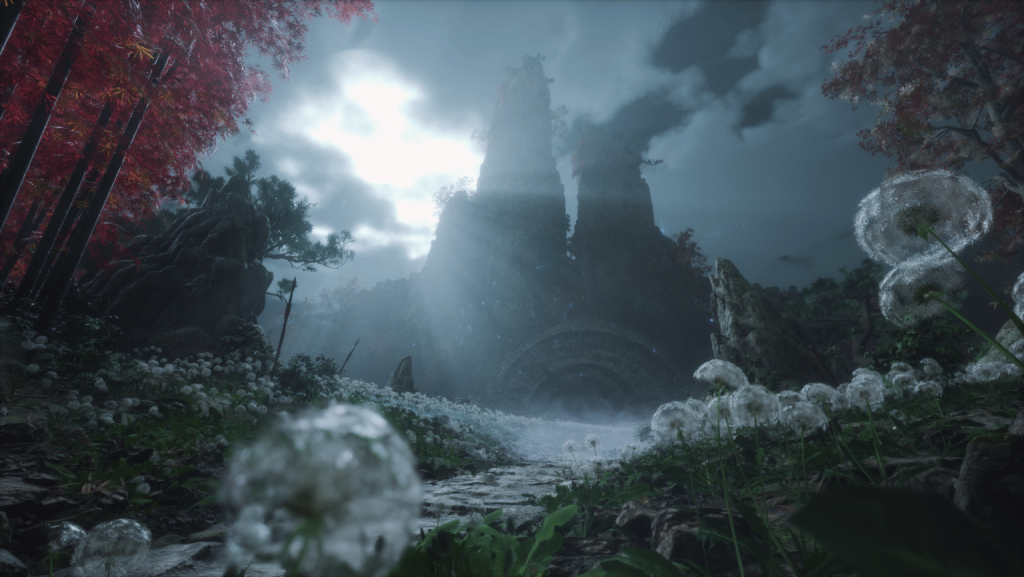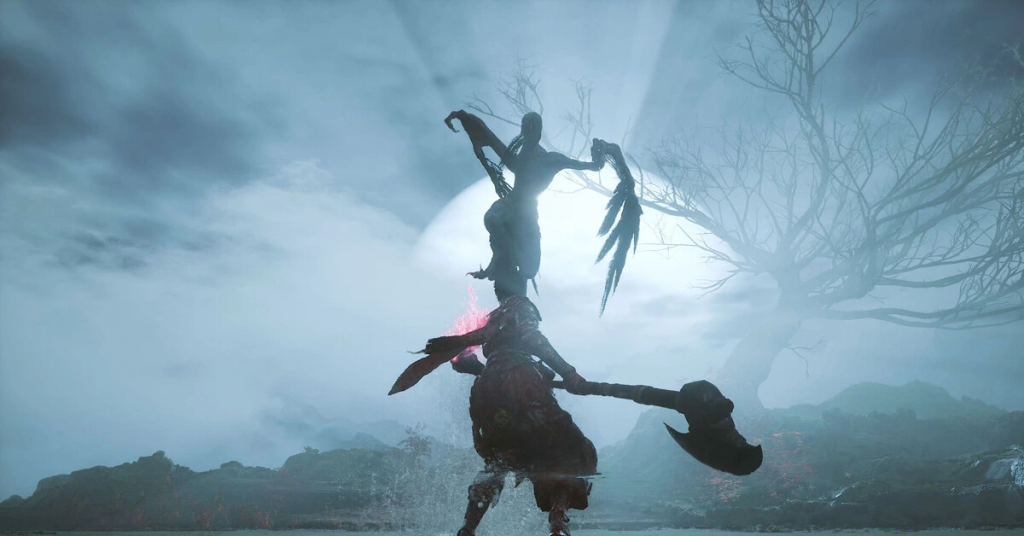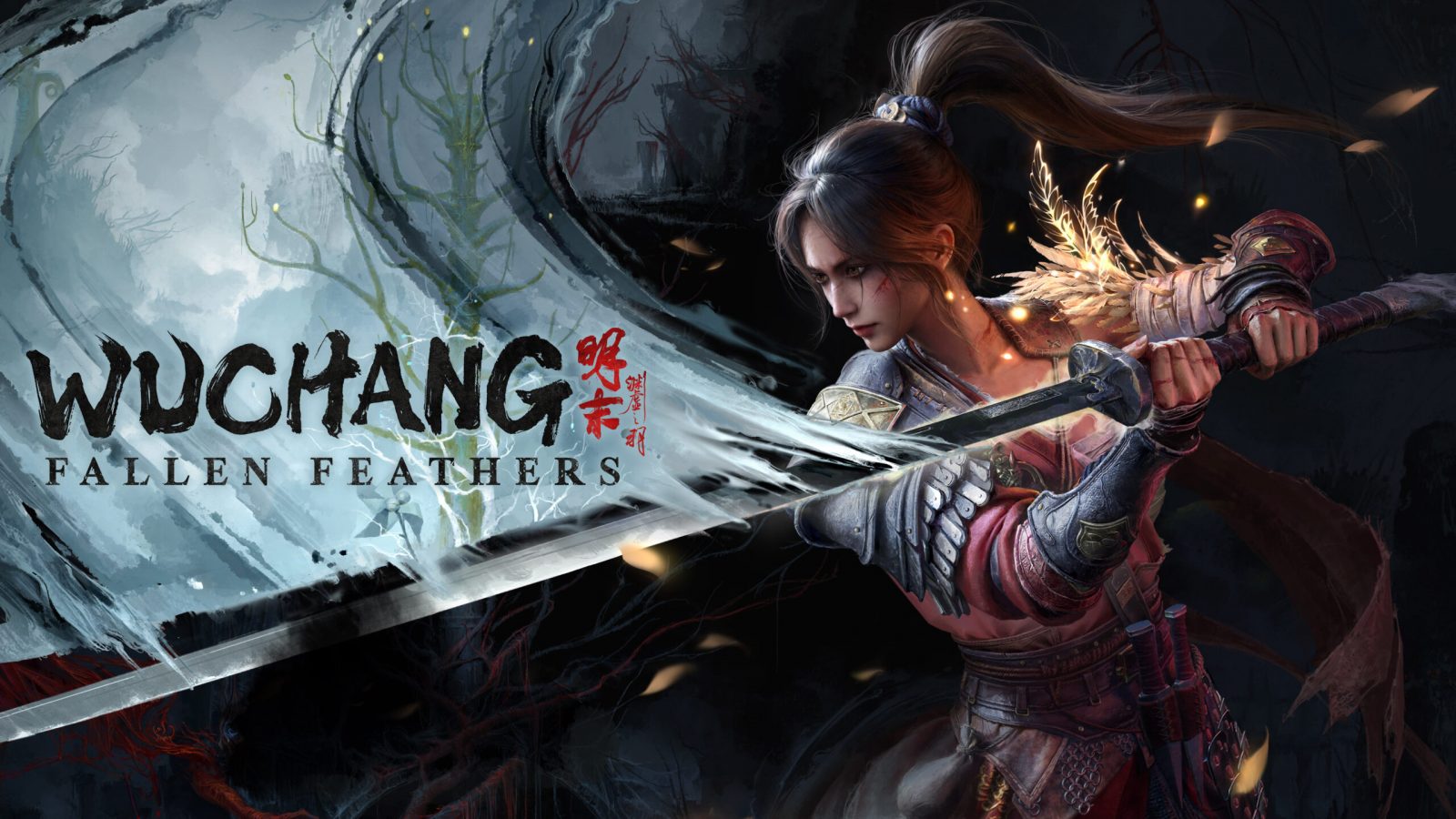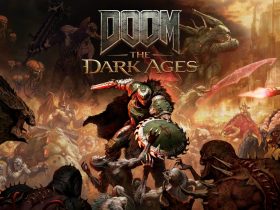We’ve had the chance to dive deep into WUCHANG: Fallen Feathers over the past few weeks. In our review, you’ll find out what fans of the genre can expect—and where this title manages to do things a bit differently than the competition.
The game is set during the late Ming Dynasty. The world of Shu is plagued by war and a mysterious illness that spawns terrifying monsters. Using the rare substance “Red Mercury,” you’ll develop your combat style and enchant weapons to suit your preferred playstyle. You follow the journey of Wuchang, a pirate-like warrior suffering from amnesia and afflicted with the eerie disease known as Ornithropy, through the game’s entire story.
This setup easily incorporates all the familiar elements fans of other Soulslike/Soulsborne titles know well: mysterious NPCs, not always trustworthy characters, and a world full of varied locations to explore. To be fair, with the sheer number of Soulslikes on the market, it’s becoming increasingly difficult to make familiar mechanics and items feel fresh. Still, the game sticks so closely to the genre’s blueprint that there’s little left to truly set it apart.
NPC interactions are kept short, choices are presented quite plainly, and—with only a few exceptions—the game doesn’t make a strong effort to build a connection between you and its bosses or antagonists. Across the roughly 32–35 hours of gameplay (including optional bosses), there are a few moments clearly designed to stir emotion, but the uneven pacing spreads them too far apart for most players to form lasting emotional bonds.

Story Beats Too Far Apart – And Too Rarely Impactful
A polished aesthetic can help mask an otherwise unremarkable story, but in any Soulslike, the heart lies in precise gameplay and memorable boss fights. Here, Wuchang tries to stand out with two mechanics: Skyborn Might and the Inner Demon System.
The flexible respec system, which allows you to reset your skill points at almost any checkpoint, is a welcome innovation for the genre. However, this strength is undermined by missing “quality of life” features that other Soulslikes have long since perfected. For example, you gain an item early on to summon NPC help in boss fights—but across the entire game, we were only able to use it for two bosses. Similarly, the return to dropping your collected points inside the boss arena feels like a step backward, especially when FromSoftware themselves have moved away from this design.
The Inner Demon System—which lets you exploit faction rivalries between enemies—appears only sporadically and mostly serves to highlight the game’s uneven balance rather than enhance the experience.
Combat is heavily dodge-focused, with blocking and parrying tied to weapon-specific skill trees and assigned to the back shoulder button. While some Soulslikes have also done away with shields, they’ve generally paired this with more reliable dodge mechanics. In Wuchang, dodging requires precise side-stepping right past your opponent—anything less drains stamina and leaves you wide open thanks to a lengthy dodge animation.

Uneven Boss Pacing
Veterans will, as always, adapt to whatever obstacles the developers throw at them, but when combined with the aforementioned performance issues, the experience lands somewhere in the middle compared to recent standouts in the genre.
Boss pacing is strange: around 4–5 hours in, you’re thrown into a tough fight before you’re really ready for it skill-wise, and afterwards, the game rarely matches that intensity again. Two or three bosses near the end may test you, but too many enemies share similar move sets, meaning you’ll rarely have to drastically change your tactics.
Multi-phase bosses are scarce—countable on one hand—and while the flexible weapon enchantment and respec systems give you plenty of tools, the game’s weak balance rarely forces you to make the most of them.

Verdict
WUCHANG: Fallen Feathers delivers almost everything you’d expect from a modern Soulslike—but unfortunately, little more. Performance issues on consoles, repetitive boss design, and an overly generic presentation hold it back. Hardcore genre fans looking for a new type of challenge may still find reasons to give it a shot, but newcomers or those seeking innovation will likely be left wanting.








Leave a Review